Recorded rape figures show up to one third of cases dropped
- Published
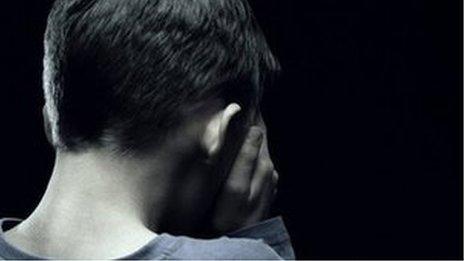
The number of recorded rapes has risen steadily since 2008
New figures show up to one third of rape investigations in some police forces in England and Wales are later dropped.
The Inspectorate of Constabulary, which compiled data from across all 43 police forces, external, revealed large variations in recorded rapes that are then dismissed.
Lincolnshire has the highest proportion of alleged rape cases that go on to be dropped, with 33% dismissed.
By contrast, the "no crime" rate in Cumbria stands at 3%.
The Inspectorate of Constabulary, which is an independent overseer of police, said the figures - for the 12 months to the end of March 2013 - indicated how different police forces were responding to rape.
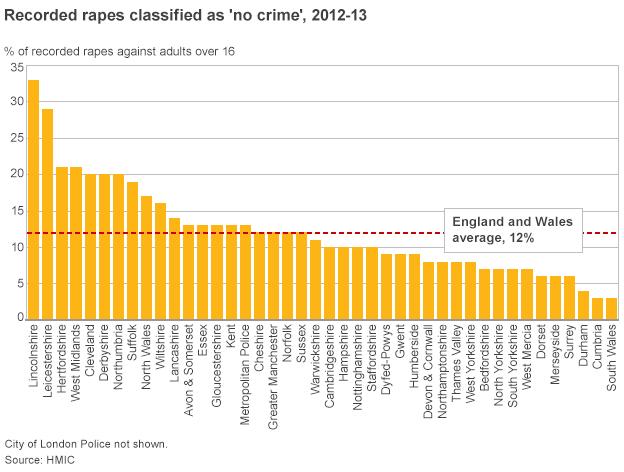
The number of recorded rapes of both adults and children has risen steadily since 2008.
In the 12 months to March 2013, there were about 10,000 recorded rapes of adults in England and Wales, and 6,000 recorded rapes of children, up from about 6,000 and 5,000 respectively in 2008/09.
The average is 22 rapes recorded per 100,000 adults.
The highest number of recorded adult rapes - 34.8 per 100,000 adult population - was in Northamptonshire. By contrast, the lowest figure was 9.8 per 100,000 adults in Durham.
The highest recorded child rape rate was 106 per 100,000 in Humberside. Hertfordshire had the lowest at 28, against an average for England and Wales of 59.5 per 100,000.
Despite being the force that recorded the lowest number of adult rapes, the data revealed Durham Police had highest "sanction detection rate". The number of rapes recorded by the force that ended in a caution or charge was at 32%, compared with an average of 18%.
Meanwhile, the data also showed that Lincolnshire Police had the highest rate - 33% - of offences initially recorded as a rape but later declassified. Elsewhere, only 3% of rapes reported to police in Cumbria were "no-crimed" - the lowest of any force.
Lincolnshire also declassified 19% of reported child rapes, compared to the national average of 5%.
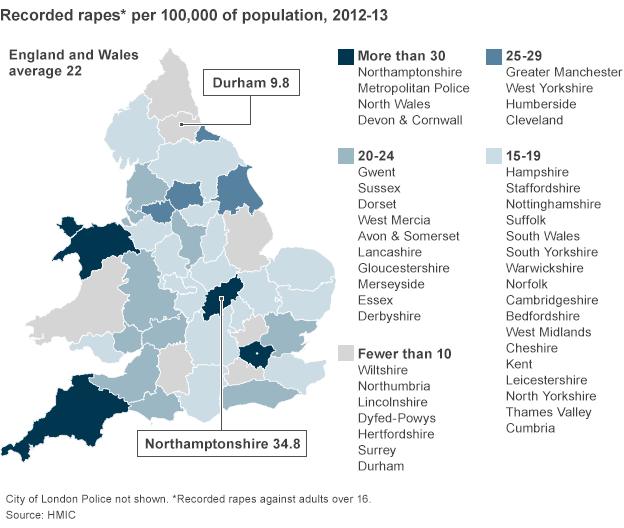
The inspectorate said there may be a "culture of disbelief" in some forces where recorded rapes were very low.
But it warned that the numbers did not tell the full story. A higher figure for recorded rapes did not necessarily mean that more rapes were being committed and a lower figure fewer.
Martin Hewitt, Deputy Assistant Commissioner Metropolitan Police: ''My priority is victim confidence, to come forward and report to the police''
It said: "Increases in the number of rapes being recorded may mean that victims feel more confident in reporting what happened to them; or decreases may mean that victims are losing confidence in the authorities to treat them sensitively."
Inspector of Constabulary Dru Sharpling said there may be a range of explanations for regional variations in recorded rapes but that questions over victims being disbelieved had to be raised.
Policing practice developer Helen Hopwood said the figures highlighted "inconsistencies between forces about the outcome of rape investigations".
"This must be tackled," she said.
Victim support groups said victims of rape needed to know they would be taken seriously and treated sensitively by police.
Liz Kelly, chairwoman of the End Violence Against Women coalition, said the variation in figures revealed a "culture of scepticism remains in some police forces".
"This is not a surprise to us. Our member organisations know how deep disbelief and victim-blaming goes in institutions and communities.
Norman Baker, Crime Prevention Minister: "I want to make sure (victims) are taken seriously"
"But the police play a critical role in enabling rape survivors to access justice, so these disparities and attitudes must be urgently tackled."
Katie Russell, of Rape Crisis England and Wales, also said the figures were not "shocking or new" but reinforced the findings of a report produced by Her Majesty's Inspectorate of Constabulary (HMIC) in 2012.
The HMIC report highlighted disparities in the ways sexual offences were investigated by different police forces.
Ms Russell said the figures seemed to "suggest there has been little change or improvement in practice" since then.
She added: "We really want to see a thorough investigation in to these statistics, we want to see police and crime commissioners and chief inspectors across the forces take them very seriously and see what can be done to improve the consistency and quality of police practice when it comes to recording and investigating these incredibly serious sexual crimes."
Some campaigners also argue it is more important to measure the number of rape convictions than recorded rapes.
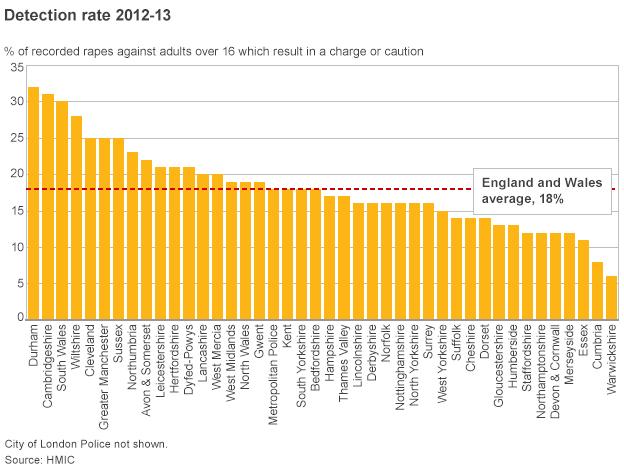
- Published2 December 2013
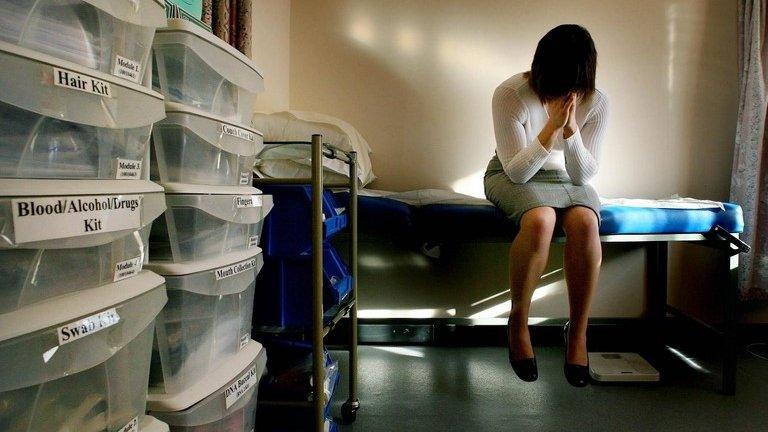
- Published19 November 2013
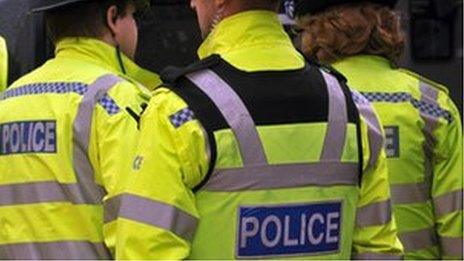
- Published27 October 2013
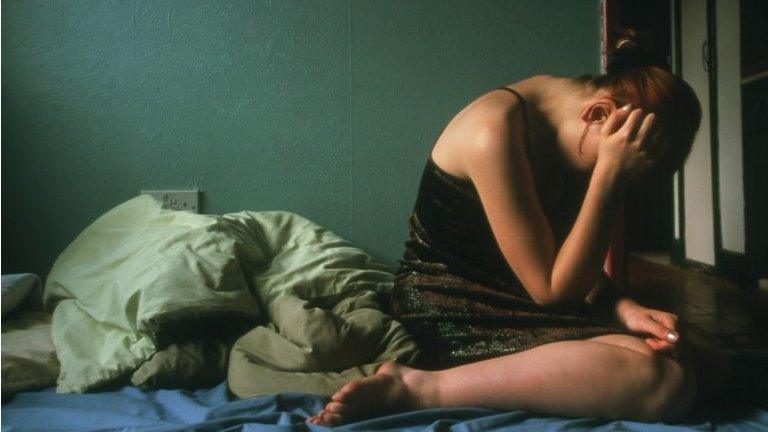
- Published6 September 2013
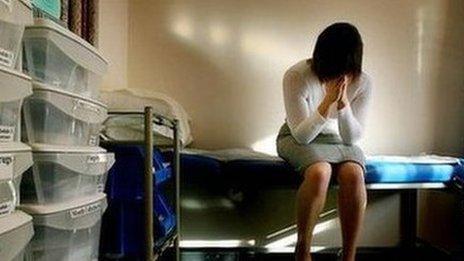
- Published7 February 2013